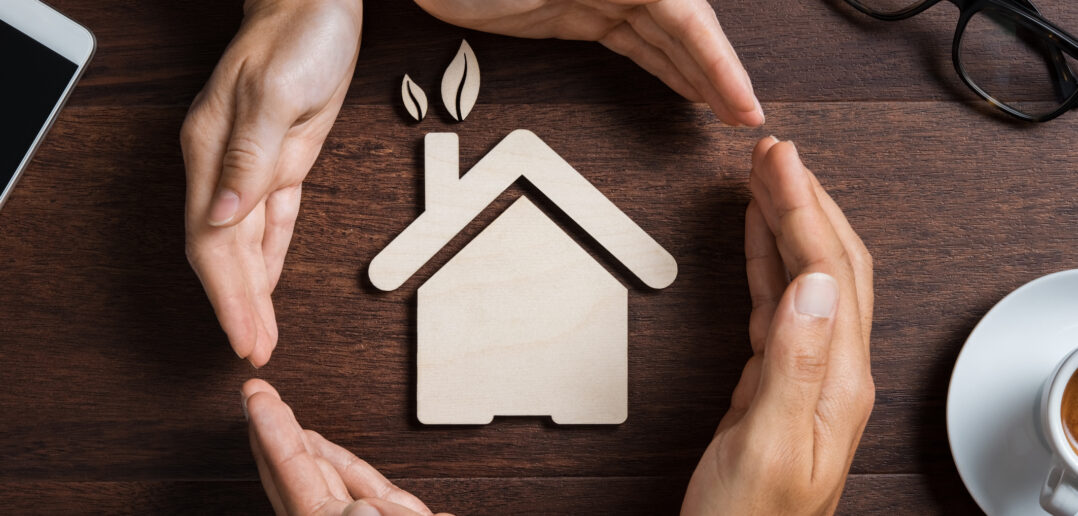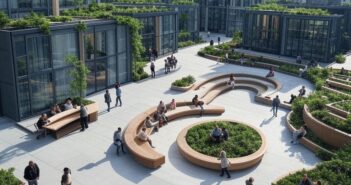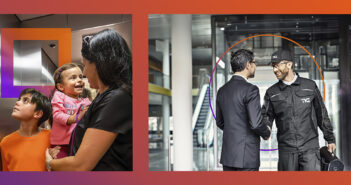Speaking at a MIPIM DailyTalks podcast on May 11th, 2020, he suggested that we are on “a broad, deep and pervasive motion toward a safe and healthy built environment” that is now “underway”.
According to Slumber, the crisis of COVID-19 could finally propel the real estate industry, which had been slow to take meaningful actions to address climate risks and treat sustainability factors as core considerations of investment. Going forward he expects more weight to be placed on sustainability, taking advantage of the acceleration opportunity created by COVIUD 19.
“In the next 12 months, we’ll see the same change that would have happened in the next 5 years. We must not waste this crisis.”, Slumber claimed.
The pandemic risk has revealed the vulnerability of our society and economies to naturally occurring disaster events. It is now obvious that there might not be enough capital or resources available to make it feasible for the real estate industry to get through natural multi-front disasters simply by cutting overhead, capex and maintenance expenditures. When left unaddressed, mass scale health, social and/or climate risks could lead to painful and steep financial losses that may be impossible to recover from. Buildings will need to adapt operational protocols and make design changes in order to remain competitive.
“Everything we should have done but haven’t had to, we now (must) do” said Slumbers, including higher indoor air quality mandates, more connected building management systems, such as one that reports real time occupancy and analyzes traffic flow for occupants and managers, along with utilization of more proptech, higher caliber, digital designing, finding replacements for carbon intensive construction materials, such as steel and concrete, and more.
Slumber believes the COVID-19 experience has fundamentally changed the pre-assumed “guaranteed” yet unspecified demand for commercial space as a simple function of employment. The rapid adoption of remote working and e-commerce combined with the pandemic fear might have changed that, entering us to “a world buildings have to prove that it is more efficient and safer” to appeal to their customers, consequently, investors
In an overview of the effects on different property types, Slumber asserted that logistics and industrial sectors would rise in importance as the demand of E-commerce and distribution centers rise, value chain shortens, and we increase upshoring. Businesses and individuals with the knowledge and resources to pick will demand safe and healthy office spaces with high air quality and service quality. People will move further out of CBDs, de-densify, and find smaller spaces near home for individual office use, or work at home, due to the growing implementation of rotating schedules and a new tolerance and encouragement of remote working. The residential sector should welcome this change as a reconfiguration opportunity (adding work spaces within apartments and homes) and focus on longer term value implications.
When asked if he thinks demand within cities will decrease, he suggested that if first tier cities become potentially more dangerous in the eyes of people, that could shift more demand growth to secondary cities, “People are genuinely fearful of where they go (as a result of the pandemic). I’d invest in the best secondary cities”.
Lastly, the severe disruptions caused by COVID-19 across the globe has provided Governments and states more incentives to mandate buildings to publicize performance data, such as air quality ratings cleaning certifications and energy efficiency, if not already disclosed. Currently, such mandates already exist in the UK and Australia, but not much of the US.
In any crisis, there lies opportunities. Slumber certainly invited us to look closer and think further about the impact and lessons learned from COVID-19, and most importantly, leverage the momentum of change to forge a more sustainable and resilient built environment that will better prepare us for future disasters and challenges.



